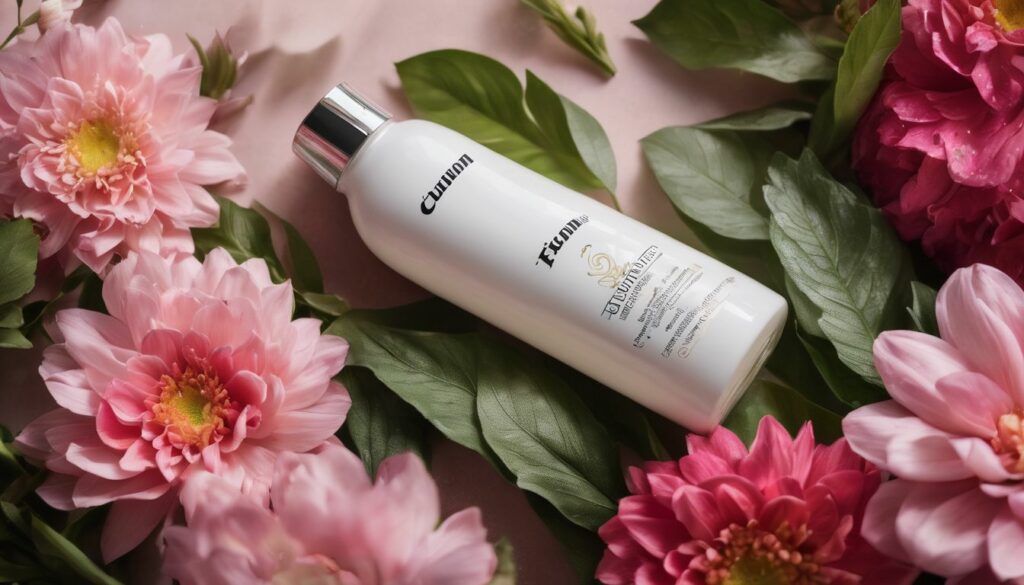- How to Choose Running Shoes for Different Terrains - January 2, 2024
- Improving Your Running Form: A Guide for Beginners - January 2, 2024
- The Science Behind Cushioning in Running Shoes - January 2, 2024
Last Updated on
Many people wish for brighter skin but worry about irritation. Did you know some whitening lotions are made just for sensitive skin? Our blog will guide you to the safest and most effective options, helping avoid any harm.
Keep reading for clear solutions!
Key Takeaways
- Always do a patch test with new whitening lotions, especially if you have sensitive skin, to avoid allergic reactions or irritation.
- Read reviews and choose products from trusted brands that offer creams without harmful chemicals like steroids or mercury.
- Understand your skin type before selecting a whitening product; matching it correctly can prevent problems and improve results.
- Look for key ingredients known for safely lightening skin, such as vitamin C or licorice root extract, which are less likely to irritate sensitive skin.
Understanding Body Whitening Creams

Understanding Body Whitening Creams delves into the mechanics of how these products aim to lighten and even out skin tones by targeting melanin production, revealing how essential it is for consumers to be informed about what they apply to their bodies.
What are Body Whitening Creams?

Body whitening creams are specialized products designed to lighten and improve skin tone. They work by reducing the concentration of melanin, which is the pigment responsible for giving color to our skin.
You’ll find these products in various forms such as lotions, oils, serums, and more traditional creams. Creams and oils are particularly beneficial for those with dry skin who need extra hydration alongside the lightening effect.
These skin-tone enhancement items often target concerns like dark spots, uneven pigmentation, or an overall desire for a fairer complexion. While some contain potent ingredients like mercury, hydroquinone, or corticosteroids known for their depigmentation ability, these substances can pose serious health risks.
This underscores why many people now seek mercury-free or hydroquinone alternatives in their journey towards lighter skin without compromising safety.
How do they work?
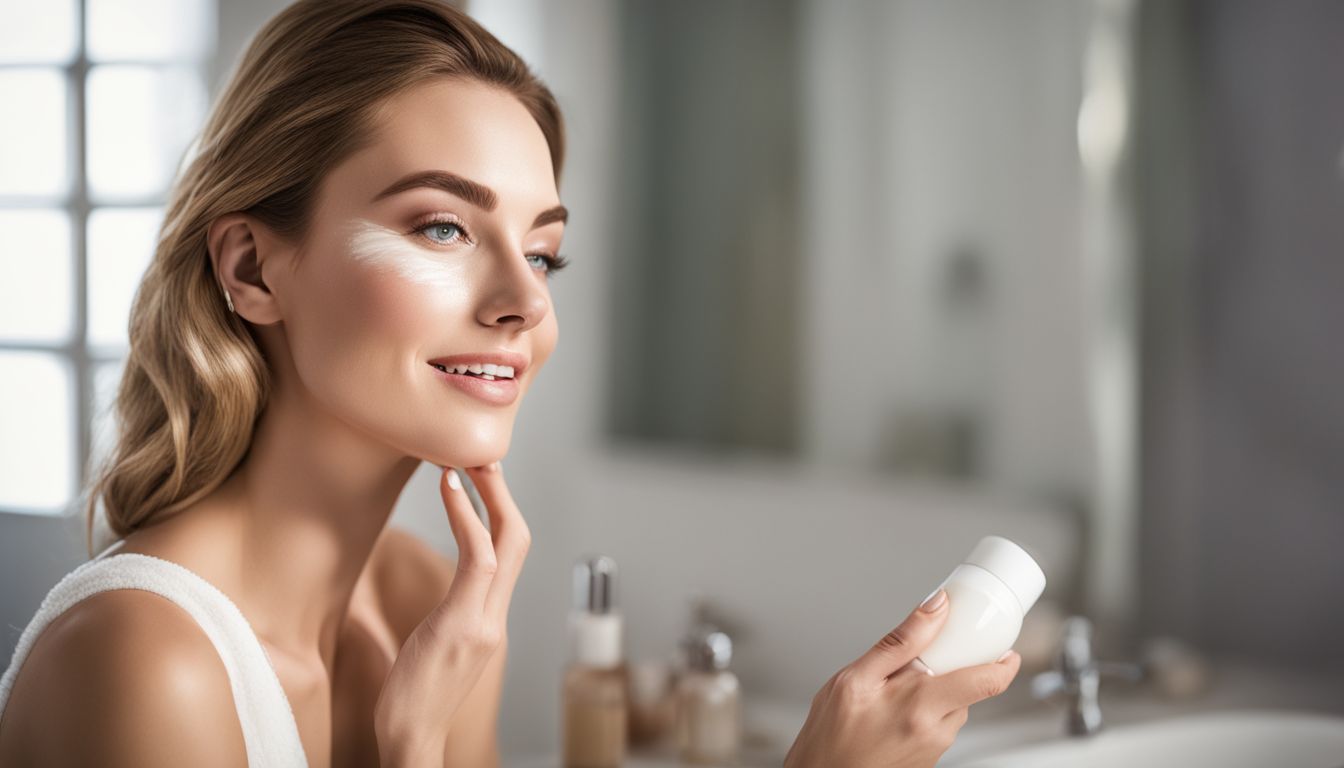
Now that we’ve discussed what whitening lotions are, let’s explore how they tackle uneven skin tone. Skin-lightening creams work their magic by targeting melanin, the natural pigment responsible for your skin’s color.
They contain active ingredients known to reduce this pigment, which in turn can lead to a lighter and more even skin tone over time.
These products often include compounds like hydroquinone or natural alternatives such as kojic acid and vitamin C, both of which have depigmenting properties. By carefully penetrating the outer layer of the skin, they help diminish dark spots and hyperpigmentation.
Regular use of these creams can visibly improve your complexion by fading areas where excessive melanin has made the skin darker than its surrounding areas.
Factors to consider when buying

Understanding Body Whitening Creams requires knowing what to look for in a product. Consumers have different needs, making it crucial to consider various factors before purchasing.
- Identify Your Skin Type: Pick a product suited for your skin type. For instance, creams and oils are better for dry skin while lotions might be preferable for oily or combination skin.
- Evaluate Ingredients: Look for key ingredients like kojic acid or vitamin C which are known to be effective in skin lightening. Avoid harmful substances like steroids and mercury.
- Consider Cost: Factor in the price of the whitening lotion. Opt for cost-effective options that do not compromise on quality.
- Read Reviews: Checking consumer reviews can offer insights into the effectiveness and safety of the product.
- Patch Test: Always perform a patch test to see how your skin reacts before applying it all over your body.
- Allergy Precautions: If you have sensitive skin, ensure that the lotion doesn’t contain known allergens that could irritate.
- Trusted Brand: Choose lotions from brands with a good reputation to reduce risks associated with unknown manufacturers.
Skin Type and Concerns

Knowing your specific skin type is crucial for selecting the right whitening lotion that won’t trigger irritation or adverse reactions. Using an unsuitable product can lead to discomfort, worsen existing problems, and potentially cause new skin issues.
It’s always important to match your skincare products with your skin type and concerns for optimal results and safety.
Importance of knowing your skin type
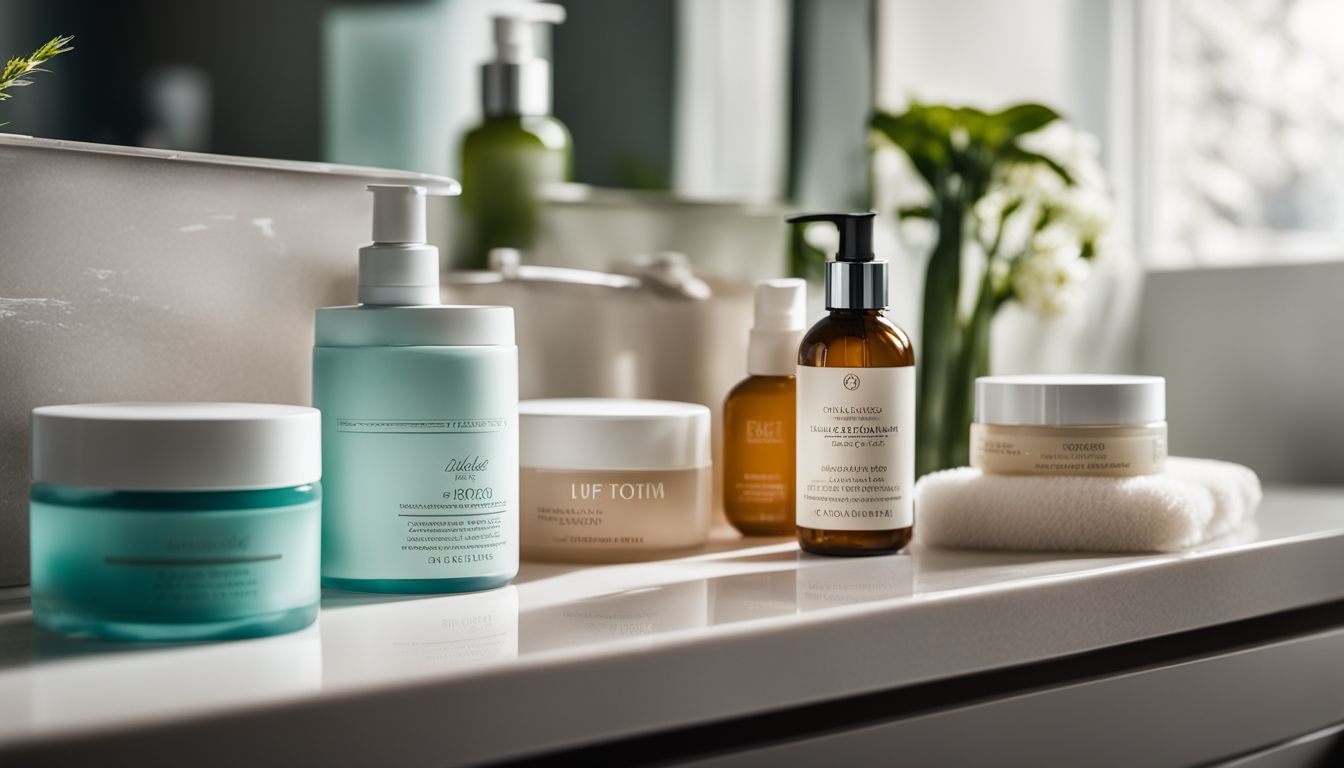
Understanding your skin type is the foundation of any effective skincare routine. It allows you to select suitable skincare products that will work in harmony with your skin’s unique characteristics.
People often overlook this step, leading to the use of products that may not be ideal for their skin concerns, which can result in irritation or other issues.
Identifying whether you have normal, dry, oily, combination, or sensitive skin helps tailor your approach to care specifically for it. For instance, if you learn that you have sensitive skin, choosing whitening lotions designed with gentle formulas becomes critical to avoid adverse reactions.
With a clear grasp on the nature of your complexion, informed skincare decisions become second nature and contribute greatly to maintaining healthy skin types.
Disadvantages of using the wrong product

Knowing your skin type is crucial because the consequences of applying the wrong whitening lotion can be dire. Using products not suited to sensitive skin might lead to irritation, redness, and unwanted breakouts.
Certain creams contain harmful substances like mercury which pose serious health risks when absorbed through the skin. Exposure to high levels of mercury can damage the kidneys and nervous systems over time.
Choosing an incompatible product may also worsen existing conditions instead of improving them. Skin lightening lotions with toxic ingredients such as hydroquinone or corticosteroids are particularly risky; they can cause thinning of the skin, leading to more vulnerability to environmental damage.
Some individuals experience hyperpigmentation rather than the desired whitening effect due to adverse reactions between their skin and these active substances.
Lastly, prolonged use of unsafe lighting products carries a hidden hazard: it masks underlying problems without treating them. This neglect can escalate minor issues into severe complications that require medical attention.
Therefore, selecting appropriate skincare for whitening purposes isn’t just about aesthetics—it’s about maintaining overall well-being and avoiding potentially life-altering side effects associated with hazardous chemicals in certain beauty products.
Safety and Side Effects
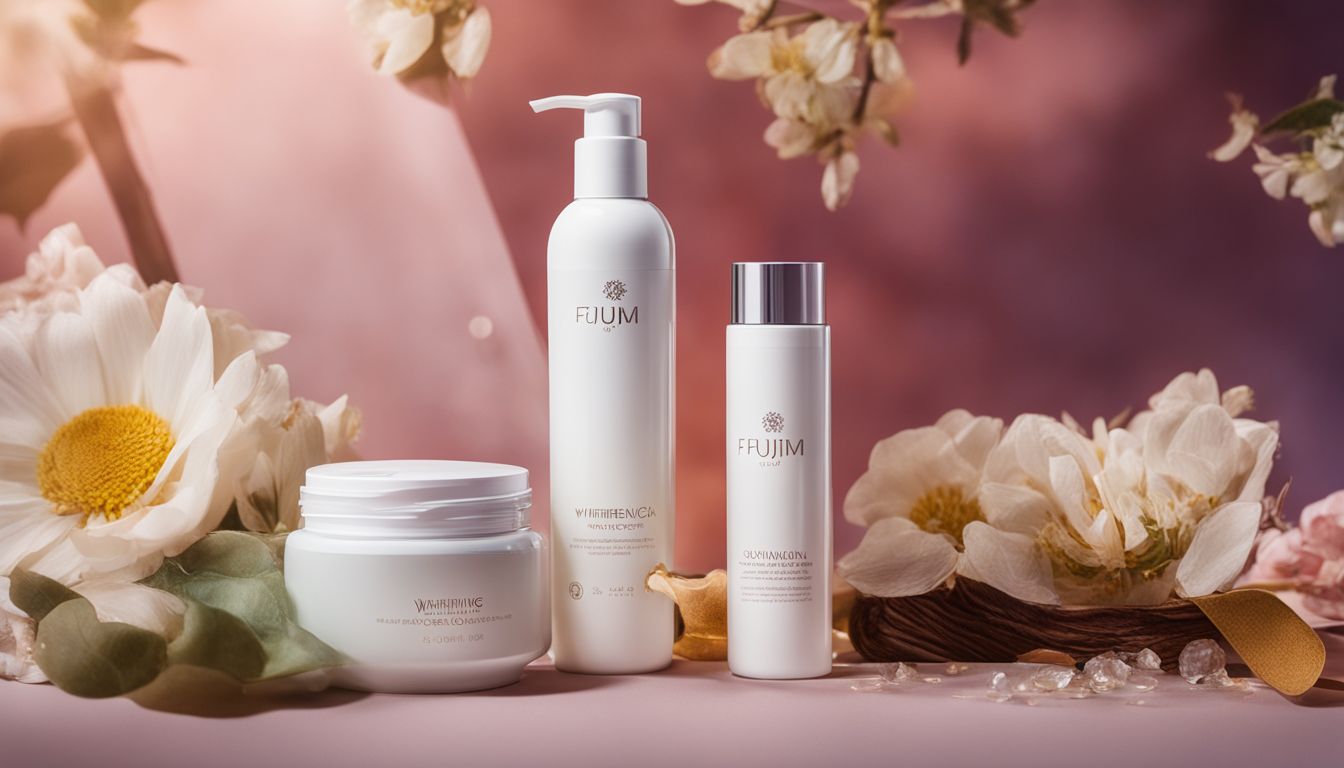
Ensure to conduct a patch test before fully incorporating any whitening lotion into your routine, especially if you have sensitive skin; be vigilant about possible side effects such as redness, irritation, or allergic reactions, and always opt for products with transparent user reviews.
Patch testing
Patch testing is a crucial step before incorporating a new body whitening lotion into your skincare routine, especially if you have sensitive skin. It helps to identify any potential reactions your skin may have to the product’s ingredients.
Simply apply a small amount of the lotion on a discreet area of your skin and wait for 24 to 48 hours. Observe for any signs of irritation or allergic reactions.
Despite claims on labels such as “hypoallergenic” or “sensitivity tested,” these are not foolproof indicators that a product will be safe for you. A dermatologist can perform patch tests with professional-grade materials if you’re experiencing persistent issues with different products.
This method acts as an effective diagnostic tool, ensuring that specific allergens causing problems are pinpointed without exposing the entire body to potential irritants.
Potential side effects
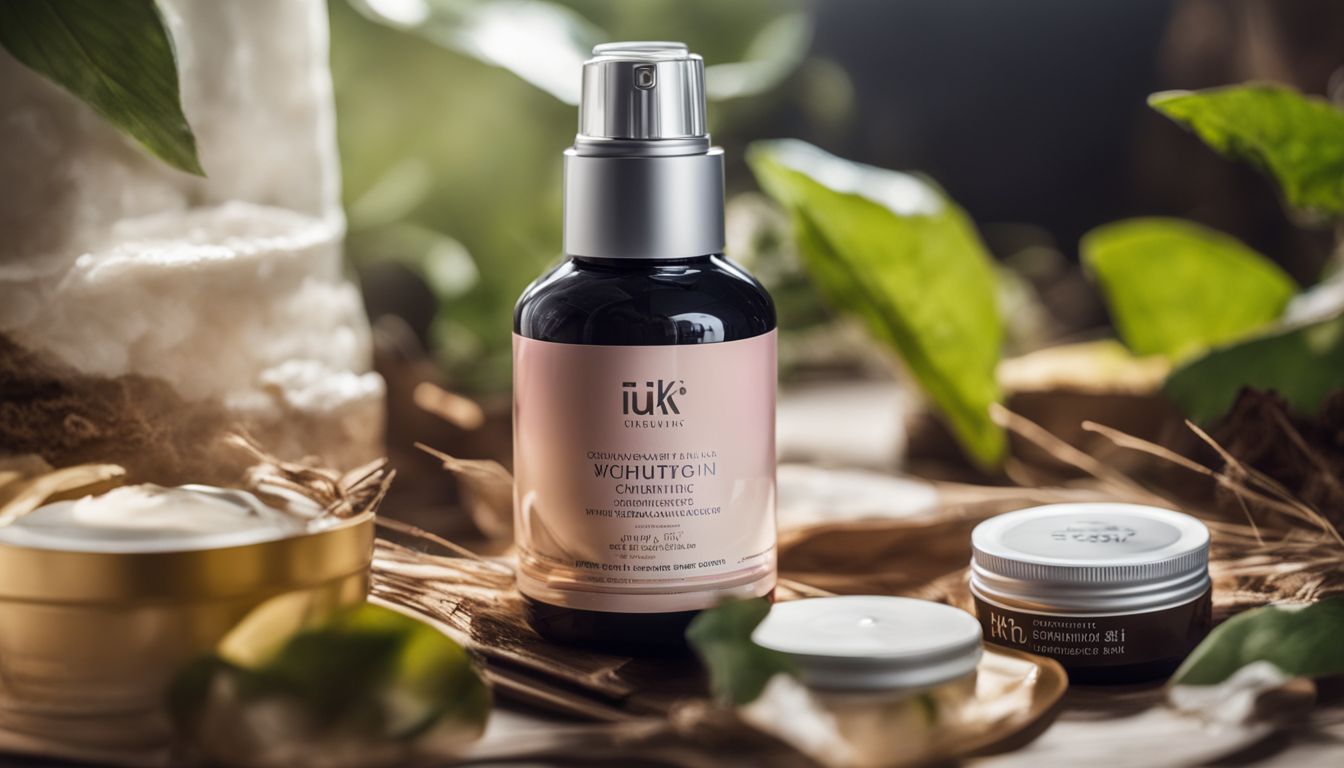
Body whitening creams can brighten your complexion, but they sometimes come with side effects. It’s crucial to be aware of these before using any whitening product.
- Mild burning or stinging might occur soon after application. This sensation generally indicates that the skin is reacting to certain ingredients in the cream.
- Some people notice redness and dryness as their skin adjusts to a whitening lotion. Regular application may exacerbate these symptoms if not monitored carefully.
- Skin irritation is another common issue, often resulting from the use of products containing harsh chemicals not suited for sensitive skin types.
- Users of skin-lightening creams containing hydroquinone may experience increased sun sensitivity. Wearing sunscreen becomes even more important when using such products.
- Dermatitis, characterized by inflamed skin, can develop as an allergic response to one or more ingredients in a bleaching cream.
- Postinflammatory dyspigmentation refers to changes in skin color after the inflammation subsides and can emerge as a consequence of using potent skin lighteners.
- Severe allergic reactions are rare but possible and might include extreme redness, itchiness, or swelling that signals the immune system’s hyper-responsiveness.
Importance of reading reviews
Knowing the potential side effects of whitening lotions can be alarming, and that’s why diving into customer reviews is crucial. Reviews give real-world insights from users who’ve tried the products on sensitive skin.
They share personal experiences with side effects such as steroid acne or skin breakdown associated with creams containing corticosteroids. By reading these testimonials, you’re better equipped to judge a product’s safety and effectiveness.
People often report their results after using whitening creams, detailing any improvements in skin tone or depigmenting effects. These accounts are valuable because they highlight both positive outcomes and warn about possible negative reactions.
Through careful evaluation of feedback, you can make informed choices and select lightning lotions with confidence, ensuring they meet your expectations for both safety and performance.
Tips for Choosing the Best Whitening Lotions for Sensitive Skin
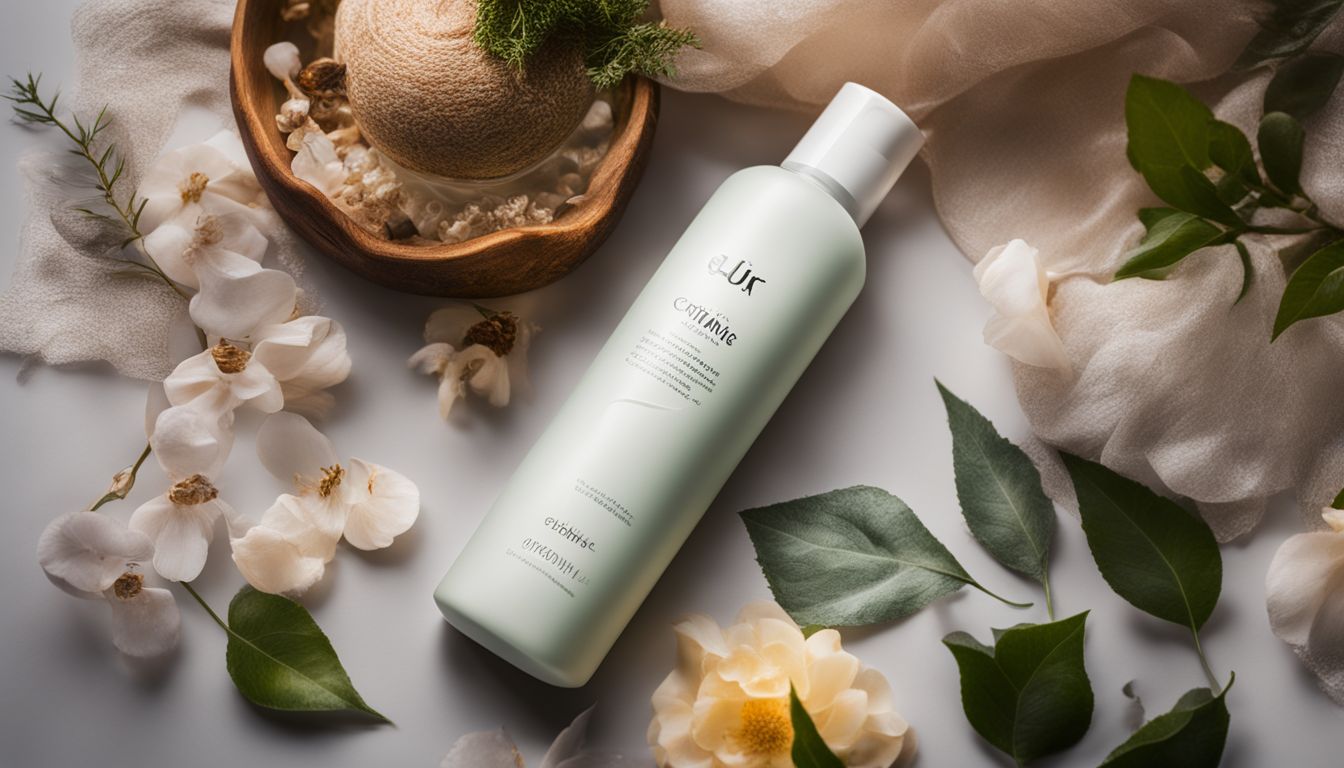
Select whitening lotions that are specifically formulated for sensitive skin, focusing on trusted brands and natural ingredients that avoid harsh chemicals. Look for products with melanin-reducing agents like vitamin C or licorice root extract and always opt for dermatologist-recommended options.
Remember to check the labels for gentle key components known to effectively brighten without irritating. Explore more tips to find your ideal skin-lightening solution tailored for delicate skin needs.
Choosing a trusted brand
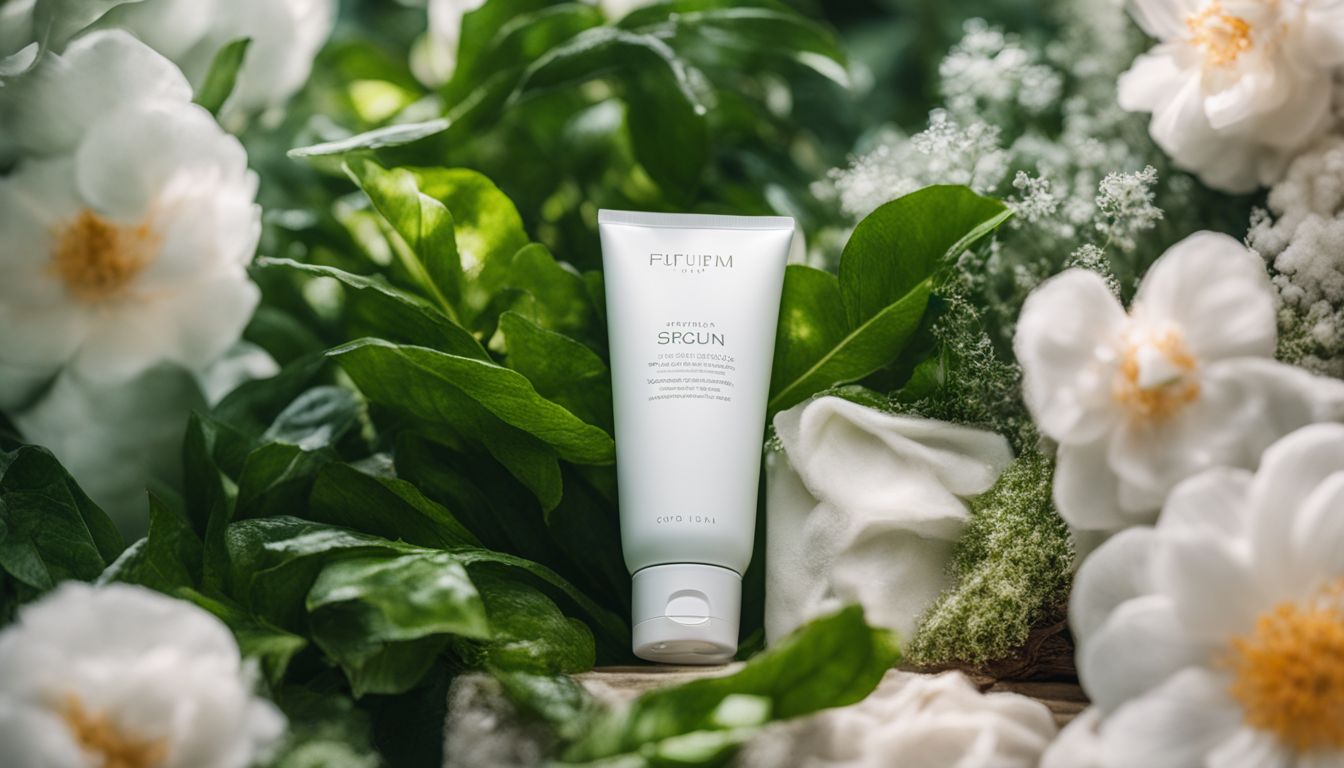
Opt for skin-brightening lotions from reputable companies with a history of positive consumer feedback. Trusted brands often invest in research and dermatologist-recommended formulations, ensuring their whitening creams are effective and safe for sensitive skin.
These companies prioritize product quality over attractive packaging or marketing ploys, focusing on delivering results for consumers seeking radiant skin creams.
Look into the transformative power reputed brands offer with their top-rated whitening lotions. A credible brand has usually earned its reputation by consistently providing hypoallergenic skin-lightening creams that cater to the needs of those with delicate skin types.
They balance potency and gentleness, offering best-in-class options for achieving a glowing complexion without causing adverse reactions – an essential aspect when dealing with sensitive skin care products.
Checking ingredients
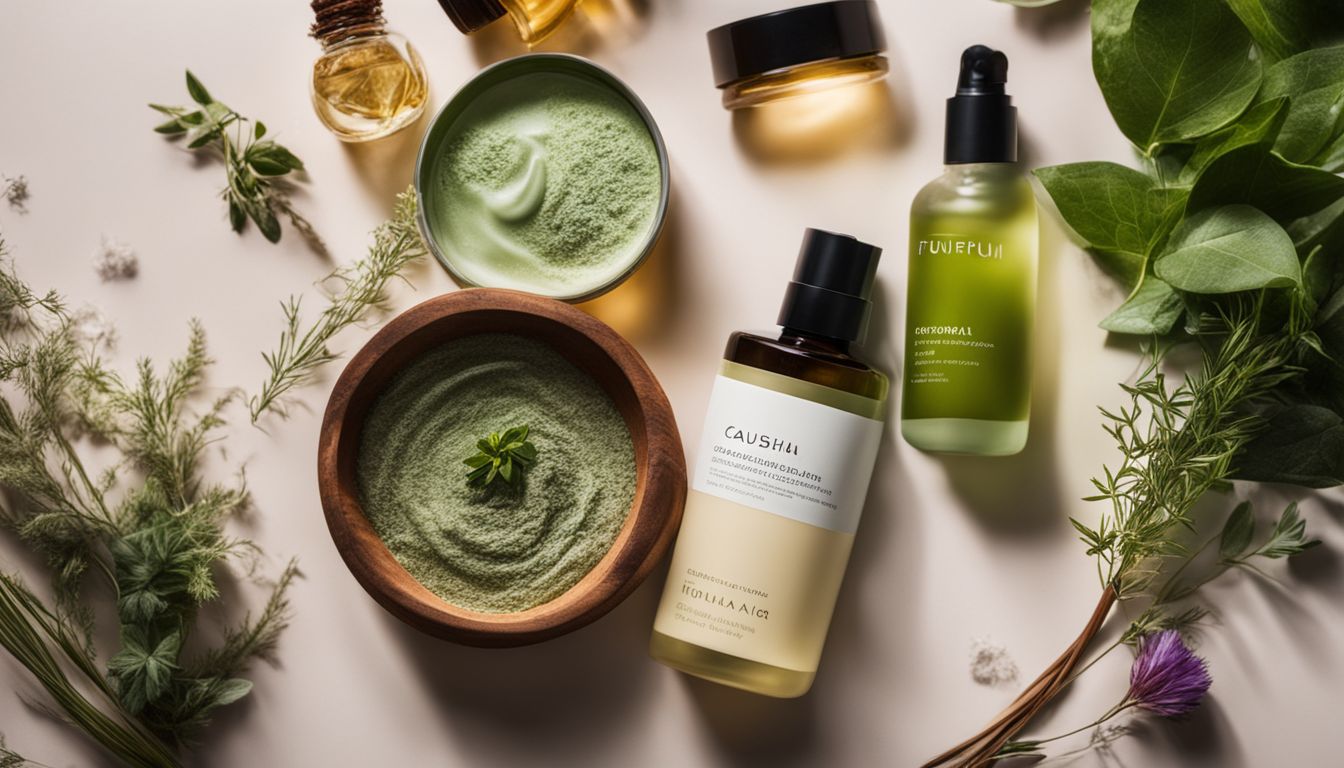
Pay close attention to the labels on whitening lotions, especially if you have sensitive skin. Look for key ingredients that are known to lighten skin effectively without irritating.
Products containing hydroquinone (HQ), retinoids, arbutin, azelaic acid, glycolic acid, or kojic acid can be good options for reducing melanin and achieving a brighter complexion. Ensure these actives are in concentrations suitable for delicate skin types.
It’s also vital to find products enriched with moisturizing agents such as ceramides and hyaluronic acid which help maintain the skin’s barrier and prevent dryness often associated with lightening treatments.
Steer clear of harsh chemicals that might trigger reactions or lead to further damage instead of providing the gentle whitening desired for sensitive skin. Next up: Understanding why avoiding harsh chemicals is crucial for your skincare routine.
Avoiding harsh chemicals
As you zero in on ingredient lists, remember to steer clear of lotions packed with substances that could irritate or harm your skin. Opt for sensitive skin-friendly skin-lightening solutions that promote a radiant complexion without the risk.
Harsh chemicals not only cause immediate discomfort but can also lead to long-term damage. Find non-toxic brightening options and say no to products with mercury, which researchers have found in dangerous levels within certain creams.
Choose nontoxic skin brightening options that nurture your skin’s health while working toward your beauty goals. Safe anti-aging products often contain natural ingredients that gently correct pigmentation issues while protecting the delicate balance of your sensitive skin.
Gentle skin brightening formulas are key; they should help achieve a more even tone without causing redness or irritation. Trust dermatologist-recommended skin lightening options for assurance that what you’re using is safe and effective for lighter, brighter-looking skin.
Key Ingredients in Effective Whitening Lotions
Moving beyond the harsh chemicals, let’s explore key ingredients that can lighten skin effectively while being gentle on sensitive skin.
- Vitamin C: This powerful antioxidant brightens the skin naturally and helps reduce dark spots. By promoting collagen production, it also improves overall skin texture.
- AHAs (Alpha Hydroxy Acids): These acids, such as glycolic and lactic acid, exfoliate the surface of the skin. They remove dead cells, leading to a brighter and more even complexion.
- Retinoids: Derived from vitamin A, retinoids promote cell turnover and can fade hyperpigmentation. It’s essential to use them cautiously as they can be irritating to sensitive skin if not used correctly.
- Niacinamide: Also known as Vitamin B3, niacinamide is known for its skin-lightening effects. It reduces inflammation and can help in diminishing redness and blotchiness.
- Kojic Acid: This ingredient is often used as a natural alternative to hydroquinone. It inhibits the production of melanin, aiding in lightening the skin tone over time.
How to Effectively Use Body Whitening Creams
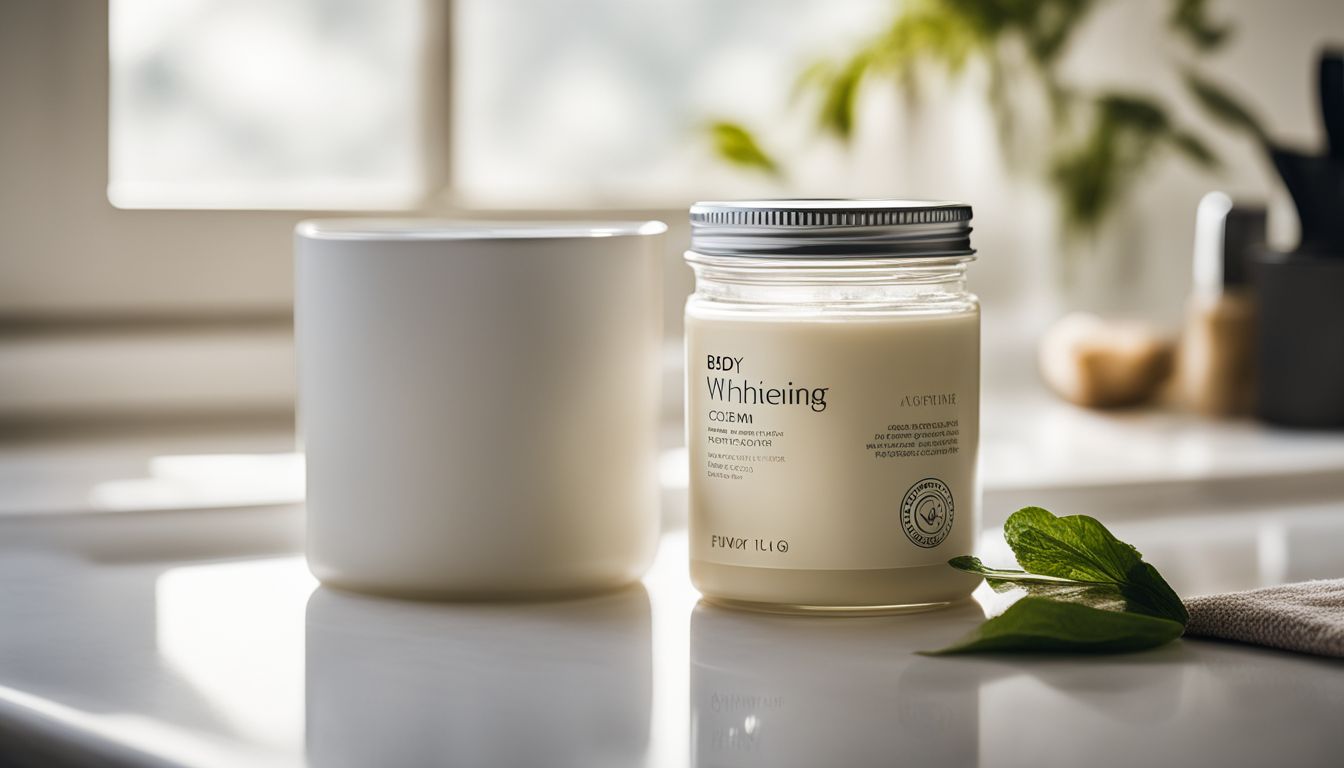
To effectively use body whitening creams, first perform a patch test to ensure there are no allergic reactions. Apply the cream according to the directions, usually in gentle, circular motions on clean skin.
Be consistent with application but avoid overuse; follow product guidelines for frequency and duration. Enhance results by complementing the cream with sun protection and a skincare routine that supports even skin tone.
Patch testing and allergy precautions
Starting a new skincare routine can be exciting, but for those with sensitive skin, it’s crucial to proceed with caution. Patch testing serves as an essential first step to prevent allergic reactions from body whitening creams.
- Conduct a patch test by applying a small amount of the product on a discreet area of your skin, such as behind the ear or on the inner forearm.
- Wait at least 24 hours after application to assess if there are any adverse reactions like redness, itching, or swelling.
- If you notice uncomfortable symptoms such as burning, tingling, or bumps, wash off the product immediately and avoid using it further.
- Keep in mind that natural ingredients can also cause allergic reactions; don’t assume a product is safe just because it claims to have natural elements.
- Before incorporating any new cosmetic products into your routine fully, repeat patch tests over several days to ensure no delayed allergic responses occur.
- Always read reviews and experiences from other users with sensitive skin who have tried the whitening lotion you’re considering.
- Consult with a dermatologist or pharmacist if you’re unsure about potential allergens in body whitening creams or if you experience persistent irritation.
- Make note of any known allergens you have and cross-check the ingredient list of the whitening lotion for these substances before purchasing.
- Carefully follow all instructions provided by the skincare manufacturer for both patch testing procedures and application methods.
Proper application methods
Proper application methods are crucial for maximizing the effectiveness of body whitening creams and ensuring safety. Follow these steps to achieve the best results while taking care of your sensitive skin.
- Always start with clean skin to allow better absorption of the cream. Use a gentle cleanser that doesn’t irritate your skin.
- Perform a patch test by applying a small amount on your inner arm before using it extensively, as this can help prevent adverse reactions.
- Apply the whitening lotion evenly across areas you wish to lighten, using circular motions to massage it into the skin thoroughly.
- Limit sun exposure after application, since some ingredients in pigment-reducing solutions can make your skin more sensitive to UV rays.
- Incorporate sunscreen into your routine, selecting a broad-spectrum SPF product to protect treated areas from sun damage.
- Use these products consistently as directed on the packaging — typically once or twice daily — for gradual and noticeable results over time.
- Avoid mixing different skin-lightening serums or treatments, as combining multiple products can increase irritation risk.
- Follow up with a moisturizer if your skin feels dry after applying blemish-fading lotions, as maintaining hydration is key to healthy-looking skin.
Tips for maximizing results
Apply your whitening lotion on freshly cleansed skin to ensure better absorption. This helps active ingredients like pigment-reducing agents and dark spot correctors penetrate effectively for optimal performance.
Keep your skin well-hydrated by using moisturizers before applying brightening serums or creams; this can enhance the product’s efficacy while protecting your skin from dryness.
Incorporate gentle exfoliation into your skincare routine to remove dead skin cells, which allows for deeper penetration of hydroquinone-free whitening creams and natural skin whitening remedies.
Always heed the potential risks of harmful substances such as mercury in some lightening products, substituting them with safer hyperpigmentation treatment options whenever possible.
Moving forward, let’s discuss common mistakes you should steer clear of to maintain healthy, glowing skin.
Common Mistakes to Avoid

Avoid common pitfalls like overusing products or neglecting potential allergies when pursuing skin lightening – stay informed and cautious for the best care of your delicate skin.
Overuse or misuse
Using whitening lotions more than recommended can harm sensitive skin, leading to irritation and skin damage. These products often contain potent ingredients designed to lighten the skin, but they must be applied carefully to avoid negative side effects.
Overuse may result in dryness, scaliness, and itchiness, and can cause your complexion to become rougher over time.
If you misuse these cosmetics by not following the application guidelines or using too much product, you risk exposing your skin to harmful chemicals like mercury or hydroquinone. Such toxic substances are linked to a slew of health issues and should never be used excessively.
Always respect the usage instructions provided with your skincare items and pay attention to how your skin responds during use.
Ignoring allergies or irritations
Just as overusing whitening lotions can be harmful, overlooking signs of allergies or irritations could lead to serious skin issues. Individuals with sensitivity to skincare products must perform patch tests before fully incorporating new items into their routines.
This small step can prevent redness, itching, and other uncomfortable reactions that might stem from an allergic response. If your skin does react negatively after a patch test or full application, stop using the product immediately.
Opting for hypoallergenic skincare reduces the chance of encountering such adverse effects. Be vigilant about ingredient awareness; steer clear of sulfates and petroleum-based components if you have a history of sensitive skin.
Those who experience irritation should seek medical attention without delay to manage the reaction properly and maintain overall skin health. Remember, safe beauty practices are not just about achieving desired results but also ensuring your skin’s safety in the process.
Using unverified or homemade products
While paying attention to allergies is crucial, another common misstep involves reaching for unverified or homemade products in the quest for lighter skin. These items might seem safe and natural, but they can be loaded with potential skin irritants that lead to adverse reactions.
Without clinical testing and verification, you have no guarantee of their safety or effectiveness on your sensitive skin.
Home remedies for skin lightening often circulate online, promising quick results without the need for commercial products. However, these DIY skin whitening treatments lack the research-backed assurance that they won’t harm your delicate complexion.
Always conduct patch testing before applying any new product liberally. This step could save your skin from irritation, damage, and unexpected allergic responses that untested concoctions can cause.
Conclusion

In summary, when seeking out whitening lotions for sensitive skin, prioritize safety and suitability. Always conduct patch tests and scrutinize ingredients for gentleness and effectiveness.
Trust reputable brands that steer clear of harsh chemicals. Remember, achieving brighter skin takes patience and care; invest in products that cater to your specific needs without compromising your health.
Choose wisely to ensure a smooth, radiant complexion with minimal risk.
FAQs
1. Can whitening lotion be used on sensitive skin?
Yes, there are specific whitening lotions designed to be gentle enough for use on sensitive skin.
2. What ingredients should I avoid in whitening lotions if my skin is sensitive?
Avoid ingredients like alcohol, fragrances, and parabens as they can irritate sensitive skin.
3. How do I know if a whitening lotion is safe for my sensitive skin?
Look for products labeled “hypoallergenic” or “for sensitive skin,” and always do a patch test before using them widely.
4. Will a whitening lotion make my sensitive skin dry?
Some whitening lotions can dry out your skin; choose one with moisturizing properties to help prevent this issue.
5. How long does it take to see results from using a whitening lotion on sensitive skin?
Results vary but typically you may start seeing changes in several weeks to months of consistent use according to the product’s instructions.

